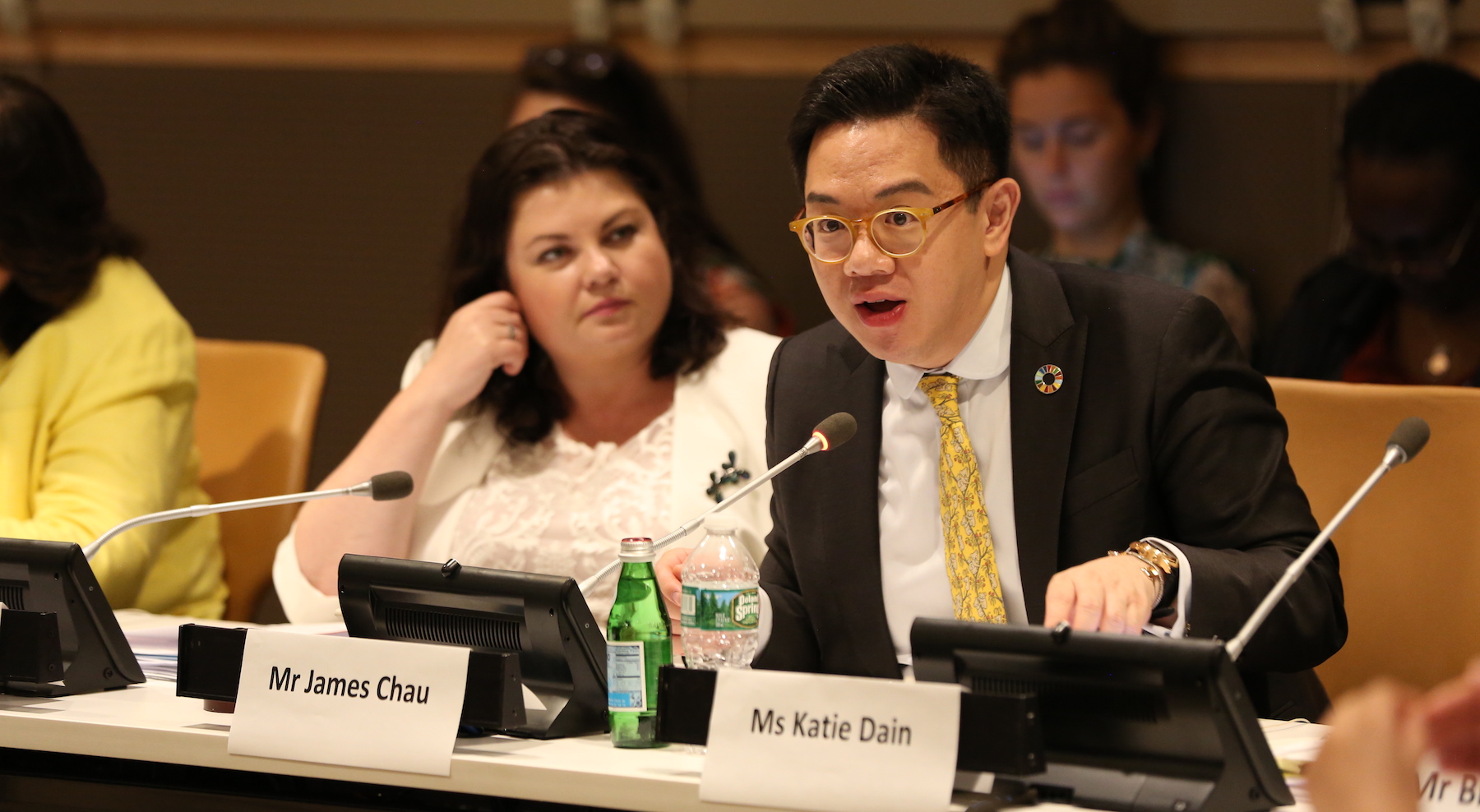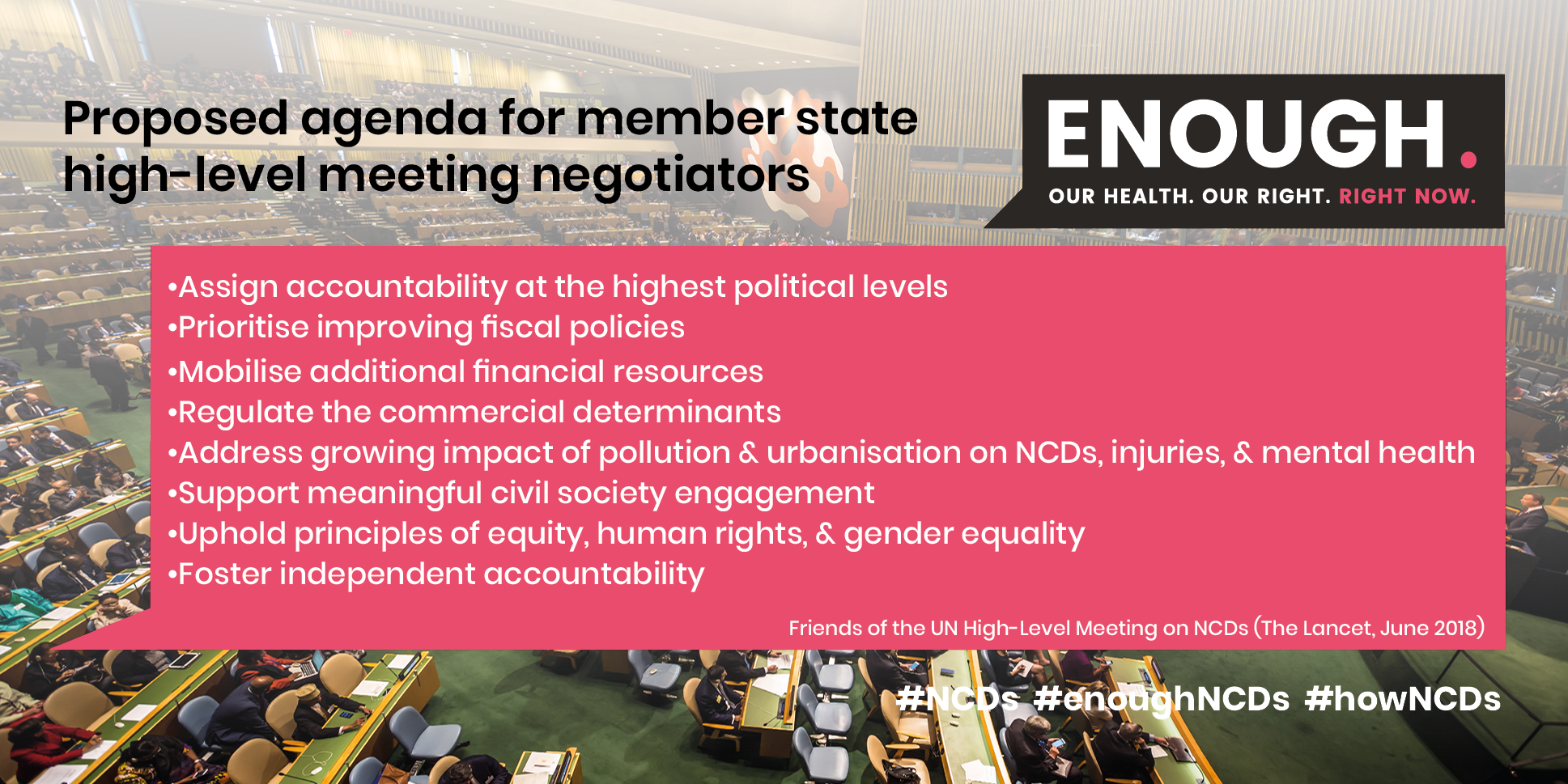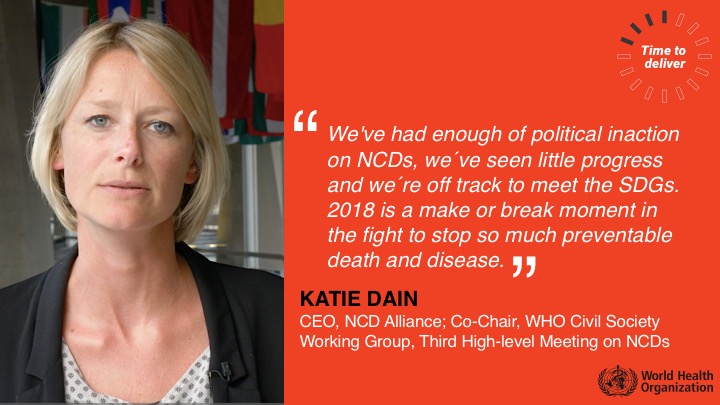
James Chau asks: What are you doing to deliver for NCDs?
In his speech in the opening panel of the Interactive Hearing on NCDs on 5 July 2018, WHO Goodwill Ambassador for SDGs and Health, James Chau focused his message on frank honesty. There’s a little bit in his speech for everyone – is there something in his honesty that resonates with you?
5 July 2018, New York
President of the General Assembly, ladies and gentlemen: It’s time to be honest.
Since the first High-Level Meeting on NCDs in 2011, not much has happened. The Secretary-General says the same.
In that year, 34 heads of state and government took part in the HLM.
In 2014, not one of them did.
In 2018, we need as many presidents and prime ministers inside this building for NCDs.
Why has there been so little progress when countries like Uruguay, Sri Lanka and Finland have taken up the challenge at the highest level, and run with it.
More governments must do the same.
On the private sector: when I go to my supermarket, I see lots of products loaded with salt, sugar and trans fats.
In 2011, you promised us that products will be reformulated, and healthier options would become available. Where are they? Show me where they are in the shops where you live?
The alcohol industry is well represented in this room. It’s important you are here. But, where are the labels on the bottles to show me what’s going into my body?
The World Cup is happening as we speak. Why are we sponsoring major sports events, and somehow implying that good health goes hand in hand with a can of soda, or a bottle of beer? You know that’s not true.
And a word on industry tactics: Big Soda and Big Sugar – don’t be inspired by Big Tobacco. Don’t take your lessons from their playbook. Be better than that.
The pharmaceutical industry is here.
Thank you for coming. You, like everyone, are part of the solution. But, help me understand this:
Why is insulin – discovered 95 years ago – still not accessible, nor affordable for poor people in poor countries.
If we can ‘export’ Facebook and Instagram, why can’t we do the same for a life-saving drug to help over 400 million people with diabetes?
It’s also the UN system. Good intentions aside, it struggles to meet a huge demand to support member states, and build national solutions.
And I’m not just referring to WHO. I’m talking about my own friends at other UN agencies.
The question for us is this: how many of the requests from countries are we really responding to? Is it 100 per cent? Or ten per cent?
Civil society must come together. It is complex to unite around multiple diseases, and multiple risk factors.
As a news anchor myself, I understand why we get excited around single disease headlines, as opposed to many non-communicable diseases – even though all of us are too familiar with words like ‘breast cancer’, ‘obesity’ and ‘heart attack’.
With respect, could civil society be a little less ‘civil’? You’re sometimes too polite. As a child, I watched on television the anti-apartheid protesters in South Africa, and saw through them how anger and self-organization can get you very far. You must talk to one another.
SDG 3.4 is not just a target or a number. It’s your citizen, consumer and customer – it is us. And we would all benefit if we live longer, healthier and happier lives.
Happy? This reminds me of mental health – that depression, anxiety, bipolar, schizophrenia and dementia can be a precursor to, or a consequence of NCDs.
As someone with depression, I want to personally ask the negotiators to ensure that new commitments on NCDs are not made without new commitments for promoting mental health.
You can make sure of this right now: the political document to be adopted in September has not been finalized. So what you say here today is not just a regular exercise, but an opportunity to influence the diplomats shaping this Declaration.
Mental health conditions are the new disease in the NCDs movement. Likewise, air pollution is the new risk factor we must to wake up to.
People are dying too young and air pollution is a major killer everywhere. In 2018, we can’t pretend that we don’t know that these issues are linked. Preventing NCDs through cleaner air will help pay off in areas like sustainable development.
We need to see NCDs not as a detached health agenda but as a fundamental core of human rights – our right, my right, to breathe clean air, eat nutritious food, and live in a health-promoting environment.
NCDs are rooted in inequalities. Whether they are inequalities of geography, race, income or gender. Like the fight against AIDS, we need a response that recognizes and acts on this.
Mr President, ladies and gentlemen, it comes down to accountability – making promises, and keeping citizens informed of where we are in fulfilling those promises.
The current framework for NCDs is not understood by many of us. Maybe we need a new model for accountability that truly involves all stakeholders?
We need independent review, we need civil society and academia involved; we need a mechanism for redress when commitments aren’t kept. Without these, calls for accountability will always ring hollow.
I began this speech by talking about 2011.
For too long, it’s been our go-to reference point for the epidemic we have on our hands.
Now, with the SDGs, we have a chance to give humanity the greatest and most beautiful gift imaginable.
It’s time to be honest. And it’s time to deliver.
Thank you.




